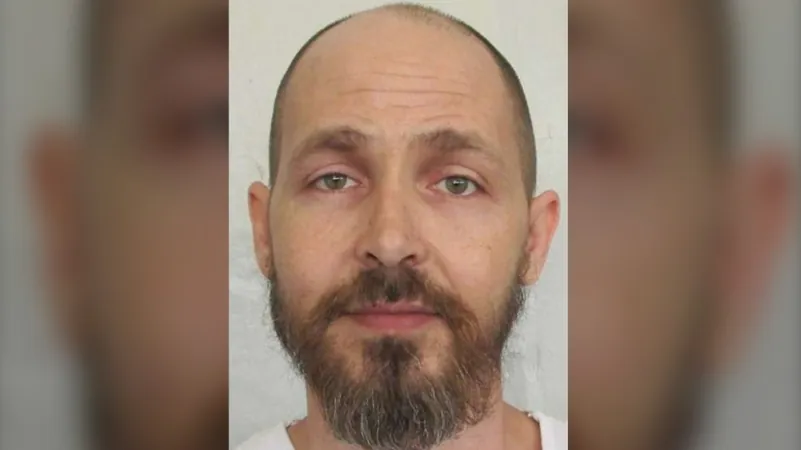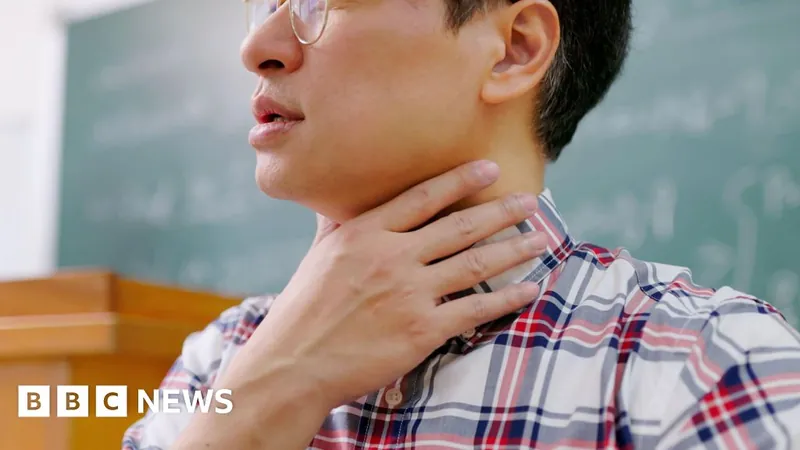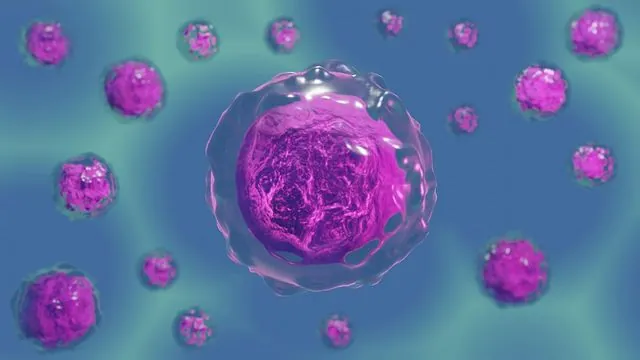
Shocking: Alabama Executes Man Using Controversial Nitrogen Gas for 1994 Hitchhiker Murder
2024-11-22
Author: Amelia
Introduction
In a haunting execution that has reignited debates on the death penalty and execution methods, Alabama has carried out its third execution using nitrogen gas, resulting in the death of 50-year-old Carey Dale Grayson, convicted for the brutal murder of hitchhiker Vickie Deblieux in 1994.
Carey Grayson's Last Moments
As he faced his final moments, Grayson, who was part of a group of four teenagers at the time of the crime, reacted defiantly. Strapped to a gurney and wearing a gas mask, he unleashed a string of curses at the prison warden, raising both middle fingers in a shocking display of contempt. When invited to make a final statement, he responded with obscenities, leading the warden to silence the microphone.
Concerns Over Execution Method
Witnesses reported that there was confusion over when the nitrogen gas began to flow. Grayson was seen struggling against his restraints, lifting his legs off the gurney, and gasping for breath before finally becoming still. He was pronounced dead at 6:33 p.m., raising new concerns over the effectiveness and humaneness of nitrogen hypoxia as a method of execution.
Nitrogen gas executions, which replace breathable air with pure nitrogen, have been a point of contention since Alabama adopted the method earlier this year. Critics argue that the technique has not been scrutinized enough, especially after observing distressing behaviors in the two earlier executions. Lawyers for Grayson contended that these executions resulted in 'conscious suffocation,' questioning the protocol's validity and ethics.
Background of the Crime
The horrific backdrop to Grayson’s execution dates back to February 26, 1994, when Deblieux, 37, was hitchhiking from Chattanooga, Tennessee, to her mother’s home in Louisiana. She met a tragic fate at the hands of Grayson and his accomplices, who lured her to a secluded area, beat her, and ultimately threw her off a cliff, later returning to mutilate her body.
Governor’s Response
Governor Kay Ivey expressed her sorrow, stating, 'Some thirty years ago, Vicki DeBlieux's journey to her mother's house was horrifically cut short because of Carey Grayson and three other men.' Ivey's statement echoes a sentiment shared by many; the nature of the crime was described as 'heinous, unimaginable, without an ounce of regard for human life.'
Legal Implications
Interestingly, Grayson was the only one sentenced to death among the group of teenagers involved because the others were under 18 years old at the time of the crime. Further legal complications arose, leading to two other original death sentences being revoked following a Supreme Court ruling against executing minors.
Broader Implications of Nitrogen Hypoxia
As Alabama continues to utilize nitrogen gas, the conversation surrounding this method of execution intensifies. Advocates against the death penalty stress the need for additional scrutiny. 'The normalization of gas suffocation as an execution method is deeply troubling,' remarked Abraham Bonowitz from Death Penalty Action, highlighting the national implications of Alabama's choice in execution protocols.
Critics warn that the execution methods are evolving, and with lethal injection drugs becoming harder to acquire, Alabama's experiment with nitrogen hypoxia could set a concerning precedent for other states contemplating similar approaches.
Conclusion
In the wake of this execution, many are left questioning not just the viability of nitrogen gas as a humane execution method, but also the broader implications for justice and the ethical treatment of prisoners on death row.









 Brasil (PT)
Brasil (PT)
 Canada (EN)
Canada (EN)
 Chile (ES)
Chile (ES)
 España (ES)
España (ES)
 France (FR)
France (FR)
 Hong Kong (EN)
Hong Kong (EN)
 Italia (IT)
Italia (IT)
 日本 (JA)
日本 (JA)
 Magyarország (HU)
Magyarország (HU)
 Norge (NO)
Norge (NO)
 Polska (PL)
Polska (PL)
 Schweiz (DE)
Schweiz (DE)
 Singapore (EN)
Singapore (EN)
 Sverige (SV)
Sverige (SV)
 Suomi (FI)
Suomi (FI)
 Türkiye (TR)
Türkiye (TR)